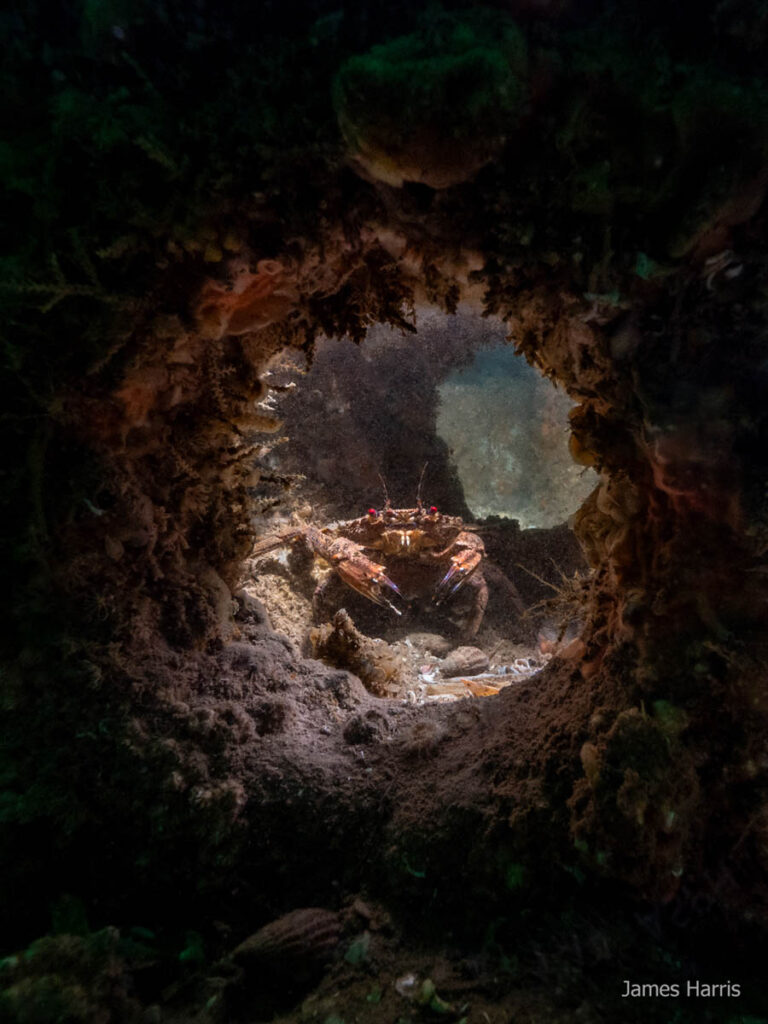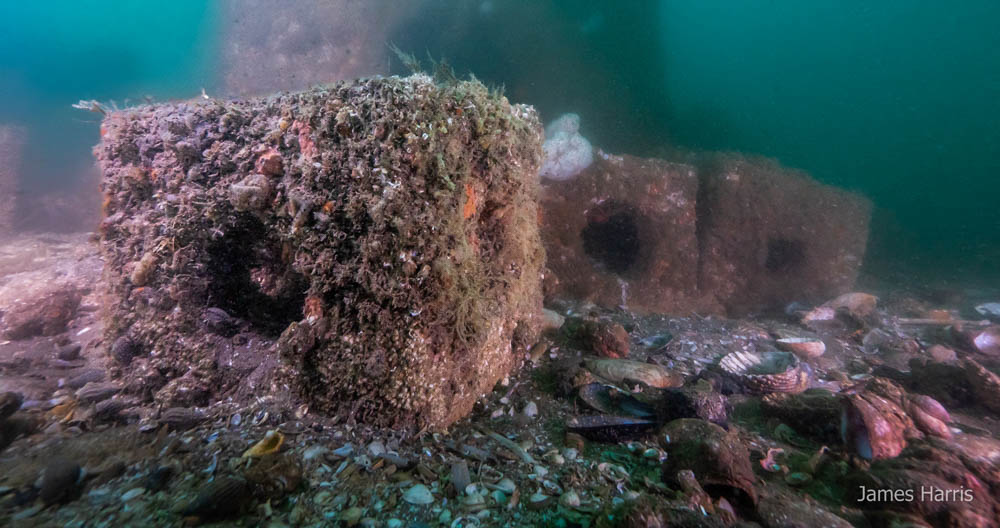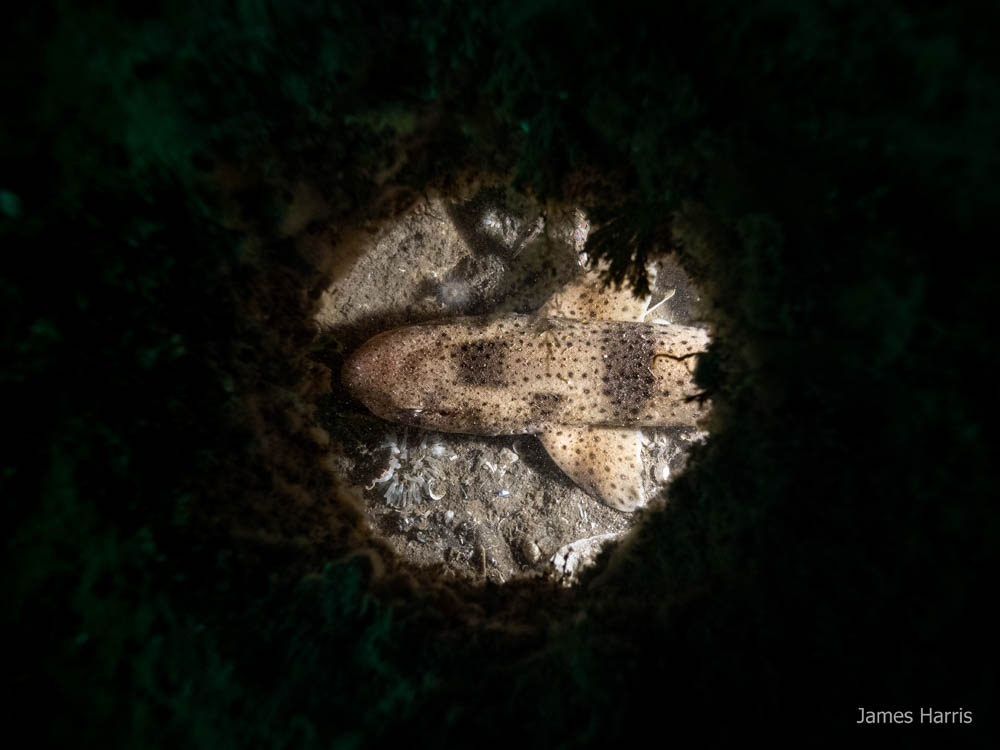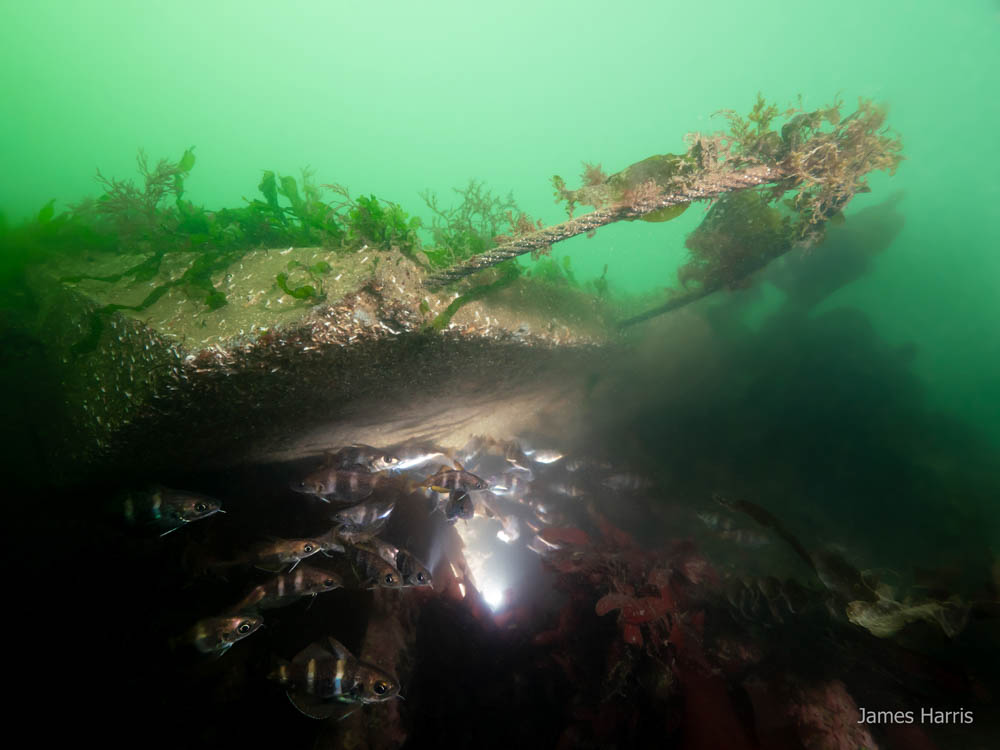ARC marine is pleased to announce that a picture taken at one of their reef cube reef sites in Torquay, Devon has received a “commended” award in the “British Waters – Living Together” category at the 2025 Underwater Photographer of the Year competition. The image, taken by underwater photographer James Harris, features a crab comfortably nestled inside one of the reef cubes.
The image reflects the role that ARC marine’s reef cubes play in offering shelter and security for marine creatures, providing them with a place to thrive within the marine environment.
ARC marine’s Mission to Restore Marine Ecosystems
ARC marine’s reef cube technology is designed to enhance marine habitats by creating complex, biodiverse artificial reefs. These structures are placed on the seabed to support various marine species, such as crustaceans, fish, and molluscs. The reef cubes aim to restore ecosystems, improve water quality, and provide a safe space for marine life to grow and develop.
“We’re excited to see one of our reef cube sites recognised at the Underwater Photographer of the Year awards,” said Tom Birbeck, Founder & CEO of ARC marine. “This image is a great representation of how these structures create safe spaces for marine life, and we’re proud to see the marine life of Devon recognised for its beauty. We often overlook the British coastline but the marine life is incredible and rivals any other place in the world.”
ARC marine’s work focuses on providing sustainable solutions to marine conservation challenges. Through technology like the reef cubes, the organisation is working to restore damaged marine environments and offer support to the species that inhabit them, whilst building out critical infrastructure like offshore renewables and coastal defence projects.
“Our reef cube project is one of many ways we are contributing to marine conservation,” Mr Birbeck added. “This award serves as a reminder of the importance of creating spaces for marine life to thrive and the value of ongoing conservation efforts. What we need to do is scale this impact globally to really move the needle in terms of global restoration efforts.”
ARC marine’s reef cube technology is just one example of the organisation’s commitment to improving marine ecosystems and promoting biodiversity. Through their innovative solutions, ARC marine aims to protect and restore marine environments, ensuring a healthier future for marine life and coastal communities alike.
A Sustainable Future for Marine Life and Diving Communities
The company’s work extends beyond creating artificial reefs; it’s about helping to restore marine ecosystems that are under threat and to do it on an unprecedented scale. For scuba divers, the reef cube offers a unique opportunity to witness the regeneration of British underwater habitats firsthand. Divers visiting these sites can see marine life flourishing around the reef cubes, from schools of fish to crabs and molluscs. These man-made reefs are vital to the ongoing effort to restore marine biodiversity.
In addition to their positive environmental impact, the reef cubes are creating new opportunities for diving tourism. ARC marine is collaborating with dive operators, local councils and environmental organisations to create sustainable dive sites that support both marine life and the diving industry. Divers can not only explore these thriving reef sites but also engage directly in conservation efforts, monitoring reef health and learning how technology can help protect our oceans.
“Almost all of ARC marine’s team are recreational divers. It’s why we got into the reef building business. We have long felt that the citizen diver is an underutilised resource that can kick start a restoration revolution!” Mr Birbeck describes. ARC is speaking with councils in Devon & Cornwall about a potential reef restoration programme supported by citizen science divers who would help with data collection.











